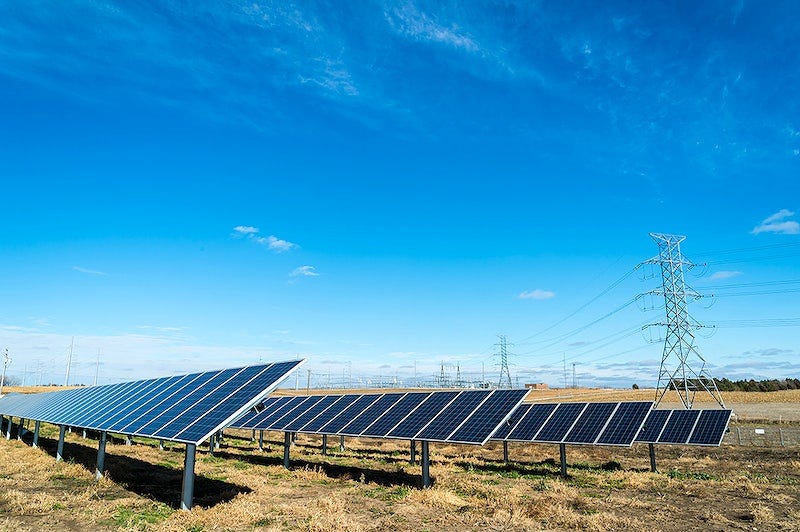Introduction:
In a world grappling with the consequences of climate change and the finite nature of fossil fuel resources, the call for renewable energy has never been more urgent.
This blog explores the imperative behind the widespread adoption of renewable energy sources, examining the environmental, economic, and societal motivations that drive the transition towards a sustainable energy future.
1. Environmental Stewardship:
The foremost reason for the global shift towards renewable energy lies in its potential to mitigate the environmental impact of traditional energy sources. Burning fossil fuels for electricity generation releases greenhouse gases, contributing to climate change and air pollution.
Renewable energy, sourced from the sun, wind, water, and geothermal heat, offers a clean and sustainable alternative. By harnessing these natural elements, we can significantly reduce carbon emissions and safeguard the delicate balance of our planet’s ecosystems.
The environmental stewardship aspect extends beyond reducing carbon emissions. Extracting and burning fossil fuels often result in habitat destruction and environmental degradation. The extraction process, such as drilling for oil or mining coal, can lead to devastating consequences for ecosystems. Renewable energy, on the other hand, has a significantly smaller ecological footprint, allowing us to meet our energy needs without sacrificing the health of our planet.
2. Climate Change Mitigation:
The scientific consensus on climate change is unequivocal, and the consequences of inaction are becoming increasingly apparent. Renewable energy technologies play a pivotal role in mitigating the effects of global warming. Solar and wind power, for instance, produce electricity without emitting greenhouse gases, offering a scalable solution to decarbonize the energy sector. The transition to renewable energy is a crucial step towards meeting international climate goals, such as those outlined in the Paris Agreement, to limit global temperature rise and protect vulnerable ecosystems.
Moreover, the use of renewable energy can act as a buffer against the impacts of climate change. As extreme weather events become more frequent and severe, a diversified energy mix, including renewable sources, enhances the resilience of energy systems. The distributed nature of renewable energy infrastructure allows for greater adaptability and recovery in the face of climate-related disruptions.
3. Energy Independence and Security:
Relying on finite and geopolitically sensitive fossil fuel resources poses economic and security risks for nations. The transition to renewable energy enhances energy independence by diversifying the energy mix and reducing dependence on fossil fuel imports. Harnessing domestic renewable resources empowers nations to control their energy destinies, fostering economic stability and reducing vulnerability to the fluctuations of the global energy market.
Furthermore, the geopolitical landscape is often shaped by competition for access to fossil fuel reserves. Transitioning to renewable energy sources diminishes the geopolitical tensions associated with resource-rich regions, promoting global stability and reducing the likelihood of conflicts related to energy resources.
4. Economic Opportunities:
The renewable energy sector is a burgeoning source of economic growth and job creation. As technology advances and economies of scale are realized, the cost of renewable energy production continues to decline, making it increasingly competitive with conventional energy sources.
Investing in renewable energy infrastructure not only stimulates economic activity but also positions countries at the forefront of a rapidly expanding global industry. From manufacturing and installation to research and development, the renewable energy sector presents diverse opportunities for innovation and employment.
The economic benefits extend beyond job creation. The renewable energy industry fosters a culture of entrepreneurship and innovation. Start-ups and established companies alike are investing in research and development, driving advancements in renewable energy technologies. This innovation, in turn, contributes to a more robust and competitive economy, with spillover effects into other sectors.
5. Public Health Benefits:
The burning of fossil fuels not only contributes to climate change but also leads to air and water pollution, adversely affecting public health. Transitioning to renewable energy sources reduces harmful emissions, improving air quality and mitigating health risks associated with pollution. Cleaner air and water contribute to healthier communities, reducing healthcare costs and enhancing overall well-being.
The public health benefits are multifaceted. Reducing air pollution from the combustion of fossil fuels directly translates into fewer respiratory illnesses and cardiovascular diseases. Additionally, the avoidance of environmental contamination, such as oil spills and coal ash disposal, safeguards water sources and protects communities from the long-term health effects of exposure to pollutants.
6. Technological Innovation:
The pursuit of renewable energy fosters technological innovation and scientific advancements. From more efficient solar panels to next-generation energy storage solutions, research and development in the renewable energy sector drive progress and open new frontiers in sustainable technology. These innovations not only improve the efficiency of renewable energy systems but also have ripple effects across various industries, spurring a broader culture of innovation.
The technological advancements in renewable energy have far-reaching implications. Enhanced energy storage technologies, for example, address the intermittency of renewable sources like solar and wind, making them more reliable and suitable for widespread adoption. These innovations not only benefit the renewable energy sector but also catalyze advancements in other industries, contributing to a more interconnected and technologically advanced future.
Conclusion:
In a world facing unprecedented environmental challenges, the shift towards renewable energy is not just a choice; it’s a necessity. The imperatives of environmental stewardship, climate change mitigation, energy independence, economic opportunities, public health benefits, and technological innovation converge in a compelling argument for embracing clean and sustainable energy sources.
The path to a resilient and sustainable future is illuminated by the power of renewable energy—a beacon guiding us towards a world where energy is abundant, accessible, and in harmony with the planet we call home. As we unleash the potential of renewable energy, we embark on a transformative journey towards a more sustainable and equitable future for generations to come.


Pingback: Harvesting Success: 11 Best Resources for Agriculture
Pingback: Farming with traditional methods in 2024
Pingback: Power of the Sun: Illuminating India's Future with Solar Energy
Pingback: Agricultural Emissions: Challenges and Opportunities | NAPL